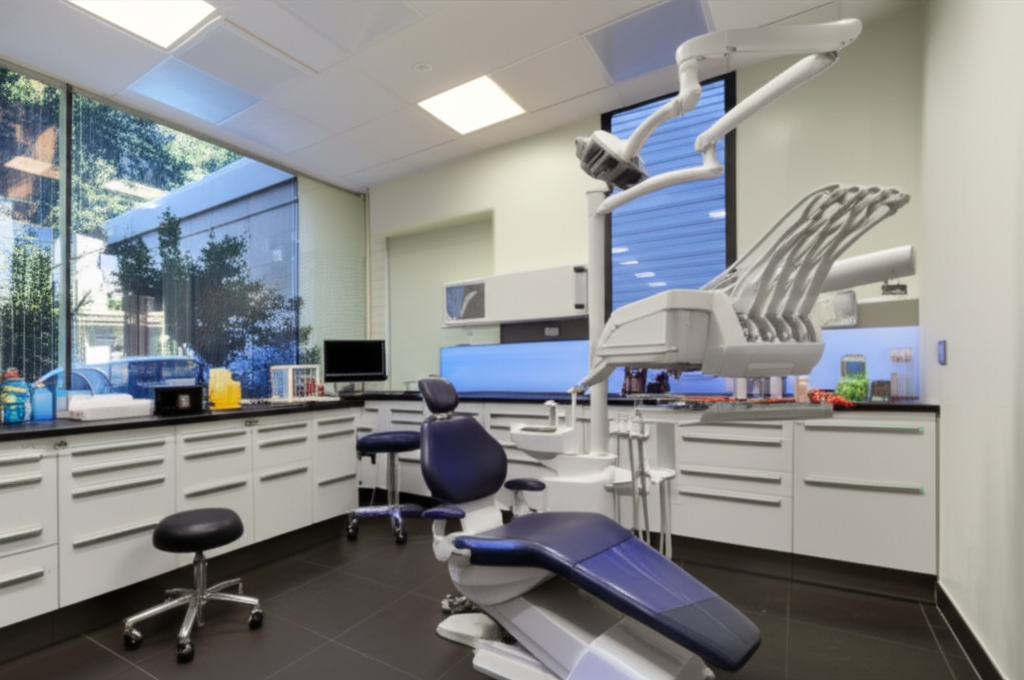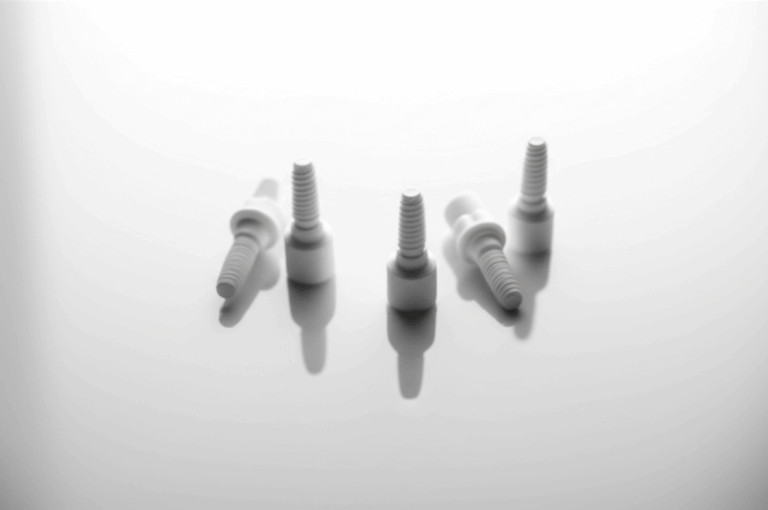
What Type of Business Is a Dental Clinic? A Comprehensive Classification
Are you curious about dental clinics, not just as a place you go for healthy teeth but also as a real business? This article explains how a dental clinic works behind the scenes, who owns them, how they make money, and why understanding their business side matters. If you’ve ever wondered how dentists keep their practice going, or if you’ve thought about working in dentistry, you’ll find simple, clear answers here.
Table of Contents
- More Than Just Healthcare: The Dual Business Nature
- What Kinds of Dental Clinics Are There?
- Who Owns Dental Clinics?
- What Services Does a Dental Clinic Offer?
- Who Works in a Dental Clinic?
- What Technology Powers Modern Dental Clinics?
- How Do Dental Clinics Get Patients?
- How Do Dental Clinics Make Money?
- What Rules Do Dental Clinics Have To Follow?
- How Is the Dental Business Changing?
- FAQ: Your Dental Clinic Questions Answered
- Key Points to Remember
More Than Just Healthcare: The Dual Business Nature
You might think a dental clinic is only about fixing teeth, but there’s a lot more happening. Yes, the main job is to help people stay healthy. Dentists clean, fill, and fix teeth. But every dental clinic is also a regular business. That means it deals with bills, pays workers, buys stuff, and tries to keep customers happy—just like any other shop.
When you go in for a checkup, you see bright lights, shiny chairs, and friendly people at the counter. What you don’t always see is everything it took to open that clinic, find trained workers, keep up with new tools, and follow all the rules. A dental clinic is both a health service and a business. This double job means running things well is important for teeth and for business.
What Kinds of Dental Clinics Are There?
Dental clinics come in more shapes and sizes than you might think. Here are the main ones:
- Private, Independent Clinics: The most common. One dentist (sometimes with a partner) owns and runs things. They make all the choices and take care of their own money.
- Group Practices: A few dentists work together. They share rent, supplies, and workers. It’s a little like being on a team.
- Corporate Clinics or Dental Service Organizations (DSOs): Big companies own lots of clinics. Dentists look after patients, while the company takes care of business stuff.
- Franchises and Non-Profit Clinics: Some clinics are like chain restaurants—part of a big brand, following certain rules. Others are non-profits that help people who can’t pay a lot.
How the clinic is set up changes who gets to decide important things and how patients are treated.
Who Owns Dental Clinics?
Have you ever wondered, “Who is in charge at the dentist’s office?” Here are the usual ways clinics are owned and set up:
1. Solo Practice (Sole Proprietorship)
One dentist owns everything. They work alone, make all the choices, and take all the risk. It’s like having your own lemonade stand, but for teeth!
- Upside: Full freedom to choose.
- Downside: If there’s a problem (like a big bill), the dentist is on the hook alone.
2. Partnership
Two or more dentists team up, sharing both work and money. It helps to share ideas, but mistakes get shared too.
3. Limited Liability Company (LLC)
Here, the clinic is its own “person” by law. This protects the dentist’s own money if things go wrong. It’s a popular pick for clinics.
4. Corporations (S-Corp, C-Corp)
Big clinics or chains choose this. There’s more protection, but it’s more confusing and costs more to start.
5. Dental Service Organizations (DSOs)
A DSO hires many dentists and runs many clinics. This can make things quicker, but may not feel as personal for some dentists.
Fun fact: In the U.S., most dentists still own their own clinics. But every year, more are joining DSOs or group practices for more support.
What Services Does a Dental Clinic Offer?
A dental clinic is much more than just cleaning teeth. You might find:
- General dentistry: Daily checkups, filling cavities, cleanings.
- Special services: Braces, pulling teeth, taking care of kids’ teeth, fixing gums, making dentures and crowns.
- Looks and smiles: Whitening teeth, veneers, implants.
- Emergencies: Fixing broken teeth or bad pain, fast.
Many clinics work closely with a dental lab or a crown and bridge lab to make good dental crowns, dentures, and bridges. Having these friends lets patients get new teeth or repairs faster.
Who Works in a Dental Clinic?
Running a dental clinic is a team effort! Here’s who usually works there:
- Dentist: The leader, finds out what’s wrong and treats it.
- Dental hygienist: Cleans teeth, teaches brushing and flossing.
- Dental assistant: Gets tools ready, helps the dentist with checks and fixes.
- Front office staff: Sets up appointments, takes payments, keeps things smooth.
No matter how big or small, every clinic needs a good team. Happy, skilled workers make patients feel safe—and happy patients come back!
What Technology Powers Modern Dental Clinics?
The tools in dental offices are much better now—no more old foot-pedal drills!
- Digital X-rays: Safer and faster and you see more detail.
- Scanners and 3D printing: Take pictures of your teeth and help design crowns and dentures quickly. Some clinics use a digital dental lab for custom solutions.
- Practice management software: Keeps track of appointments, bills, and patient info.
- Electronic Health Records (EHR): Makes it easy to keep patient information safe and share with other clinics.
- Teledentistry: Video calls let dentists check on people without a visit.
New tools mean better care, less pain, and less waiting.
How Do Dental Clinics Get Patients?
Clinics need patients to help people and keep going. Here’s how they find new ones and keep the old ones:
- Marketing for new clinics: Ads, postcards, stories in local news, special prices.
- Keeping patients: Birthday cards, checkup reminders, nice follow-ups.
- Online stuff: A fun, easy-to-read website and good reviews help a lot. Clinics use things like Google My Business and Yelp to share happy patient stories.
- Community outreach: Free dental days or school visits to teach about teeth.
Some clinics partner with a china dental lab to offer lower-cost options, so more families can come.
How Do Dental Clinics Make Money?
Let’s talk about money! How does a dental clinic pay for everything and keep the doors open?
How They Make Money
- Patient payments: Most clinic money comes from patients paying for visits, cleanings, fillings, and more.
- Insurance money: Many people use dental insurance. Clinics file claims and get paid by the insurance company.
- Membership or payment plans: Some offer monthly plans for people without insurance.
- Extra services: Whitening, braces, or implants help bring in more money.
Here’s a basic table showing big costs and main ways a dental clinic gets paid:
| Revenue | Main Costs |
|---|---|
| Patient payments | Paying the workers |
| Insurance pay | Rent or building bills |
| Cosmetic work | Supplies and tools |
| Payment plans | Marketing |
| Emergency care | New technology |
Did you know? The average profit margin for most dental clinics is between 25% and 40%. That means for every $100 a clinic makes, about $25 to $40 is left after paying all the bills.
What Rules Do Dental Clinics Have To Follow?
Dental clinics must follow many rules to stay open and keep people safe:
- State Dental Boards: Each state decides the rules for dentists, hygienists, and clinics.
- HIPAA: Keeping your medical info private and safe is a must.
- OSHA: Makes sure the clinic is clean and safe so germs don’t spread.
- ADA (American Dental Association): Sets the main rules for being honest and acting right.
Breaking rules can get a clinic in big trouble—like big fines or losing the right to work.
How Is the Dental Business Changing?
Dentistry is always changing. Here’s what’s different lately:
Digital Changes
More clinics use computers for patient records, making crowns and dentures, and even talking to patients using video. For tough jobs, a specialty zirconia lab or implant dental laboratory can make strong, new replacements much faster.
Bigger Clinics and DSOs
Fewer dentists own their clinic alone now. More are joining teams with shared help, which can make work easier but not as private.
Prevention and Health
More people want to stop teeth problems before they start. Dentists now teach healthy habits, not just fix problems.
More Cosmetic Dentistry
Lots of people want whiter, straighter teeth. Things like veneers are getting more popular, which helps clinics get more new customers. To learn more about smile makeovers, check out a good veneer lab.
FAQ: Your Dental Clinic Questions Answered
Q: Can anyone open a dental clinic?
A: Only a real dentist can treat people or own most clinics. But in some places, business people can own clinics (like with a DSO), but a dentist must do the dental work.
Q: Why do dentists join big groups or DSOs?
A: Running a clinic is hard work. Big groups or DSOs help with business stuff, paying staff, and buying supplies, so dentists can just focus on treating people.
Q: How much does it cost to start a dental clinic?
A: It takes a lot of money—usually between $300,000 to $700,000. Most of it goes to buying equipment, setting up the place, and hiring workers.
Q: Who helps dentists make crowns, dentures, and implants?
A: Dental clinics usually work with expert partners like a crown and bridge lab or a china dental lab. Labs make custom teeth to fit each person.
Key Points to Remember
- A dental clinic is both a health service and a real business.
- Clinics can be private, group-run, part of a DSO, a franchise, or non-profit.
- Owners include solo dentists, partnerships, LLCs, or big companies.
- Clinics do more than cleanings—think braces, implants, and more.
- It takes a team: dentists, hygienists, assistants, and front desk people.
- Digital tools make care and office work better and faster.
- Attracting and keeping patients is important—good service and smart marketing help.
- Clinics earn money from visits, insurance, special services, and more.
- Every clinic follows strict rules set by the state, ADA, and other groups.
- Dentistry is changing fast, with more tech, bigger groups, and new ways to care for teeth.
- Behind every happy smile is a smart business and a caring team!
By learning how a dental clinic works as both a business and a health place, you’re closer to knowing what makes those bright smiles possible!








